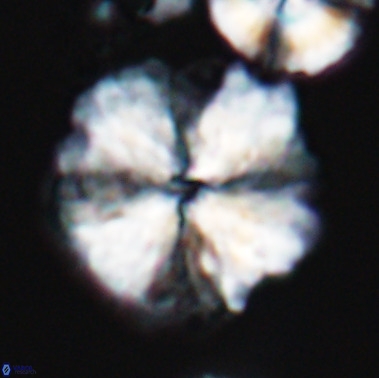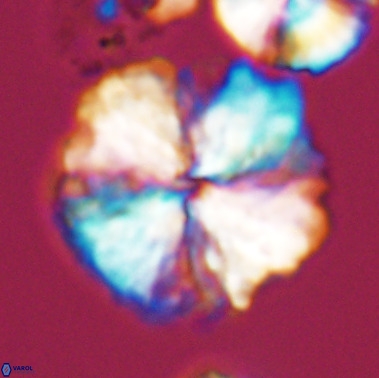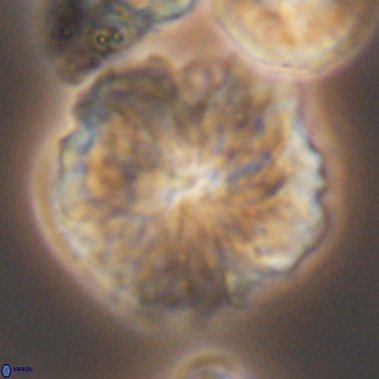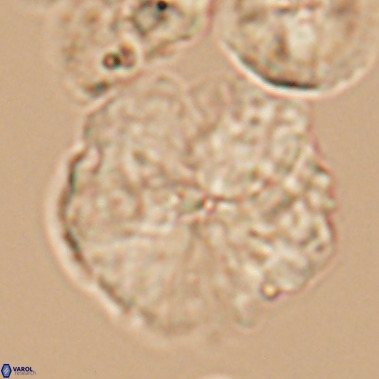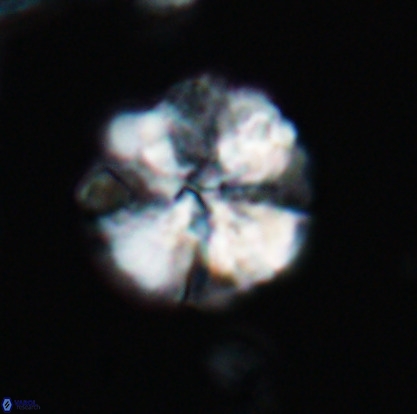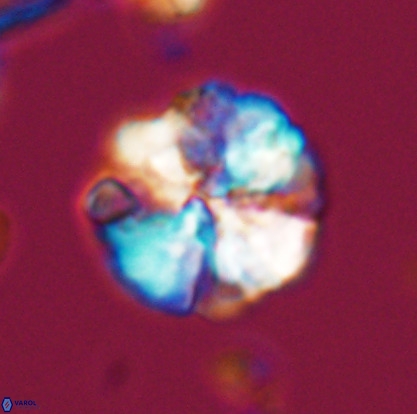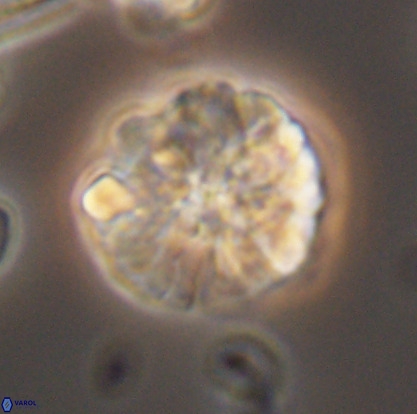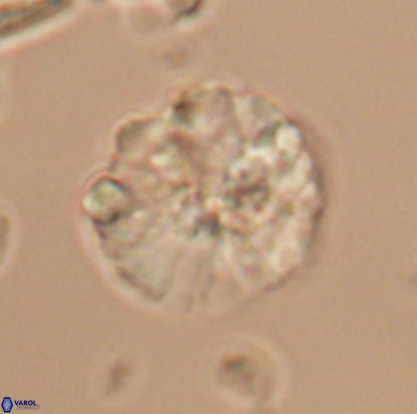Nannoconus magnadiscus
Set number: 1707
-
1
-
2
10µm
Large (>10.00 μm) and disc-shaped Nannoconus.
From Latin magna, great and discus, disc – referring to its large disc shape.
Diameter = 10.47 μm
Nannoconus magnadiscus is always observed in plan view due to its low height (<3.0 μm). It has a moderately thin wall cycle with a high-angle and very narrow canal, which is often not visible.
Nannoconus magnadiscus exhibits the morphological and optical characteristics typical of the Nannoconaceae family, which help differentiate it from larger species of Cyclagelosphaera, such as Cyclagelosphaera brazae and Cyclagelosphaera deflandrei.
Applegate, J. L. & Bergen, J. A. 1988. Cretaceous calcareous nannofossil biostratigraphy of sediments recovered from the Galicia Margin, ODP Leg 103. Proceedings of the Ocean Drilling Program, Scientific Results. 103: 293-348.
Kamptner, E. 1931. Nannoconus steinmanni novo gen., novo spec., ein merkwurdiges gesteinbildendes Mikrofossil aus dem jungeren Mesozoikum der Alpen. Paläontologische Zeitschrift. 13: 288-298.
Manivit, H. 1966. Sur quelques coccolithes nouveaux du Néocomien. Compte Rendu Sommaire des Séances de la Société Géologique de France. 7: 267-268.
Roth, P. H. 1973. Calcareous nannofossils: Leg 17 of the Deep Sea Drilling Project. Initial Reports of the Deep Sea Drilling Project. 17: 695-795.
Varol, O. & Bowman, A.R. 2019. Taxonomic revision of selected Late Jurassic (Tithonian) calcareous nannofossils and the application of mobile mounting. Neues Jahrbuch für Geologie und Paläontologie, Abhandlungen. 291/1 (2019): 1–23
